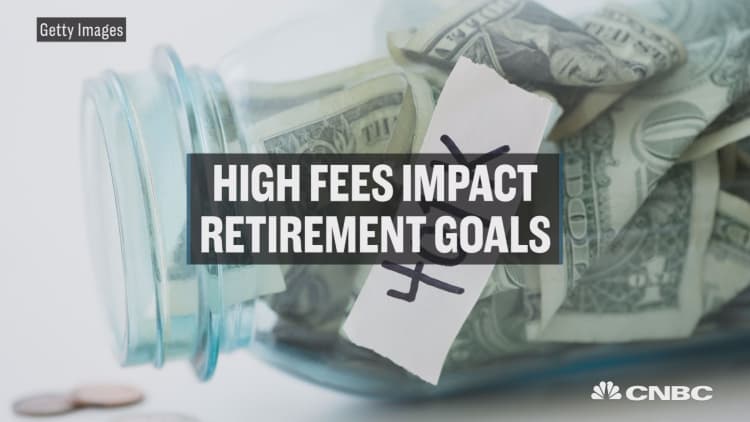Spencer Platt | Getty Images News | Getty Images
Wells Fargo has returned $40 million to nearly 11,000 customers who were overcharged for investment advice fees over a period of several years, according to a statement by the Securities and Exchange Commission (SEC) on Friday.
In addition, the bank has agreed to pay a $35 million civil penalty to settle SEC charges. While Wells Fargo did not admit to the allegations, it did not deny them either, as per the agency.
The SEC reported that some Wells Fargo financial advisors, including those from merged legacy firms, had agreed to reduce standard advisory fees for certain clients when their accounts were opened. However, due to internal system failures, these reduced fees were not incorporated in some cases. As a result, Wells Fargo overcharged 10,945 accounts that were opened before 2014 for several years, until the end of December 2022, according to the SEC.
More from Personal Finance:
31% of investors are comfortable with AI as their advisor
No such thing as a “free lunch” with high-interest cash options
Household debt reaches record high, but 2008 was worse
The $40 million reimbursement provided by the bank to affected customers includes in excess of $26.8 million in fees, along with interest.
As per the SEC, AG Edwards and Wachovia, the bank and predecessor firms involved, lacked written policies and procedures to prevent the overbilling. AG Edwards and Wachovia merged in 2007, followed by the merger of Wells Fargo and Wachovia in 2008.
“For years, Wells Fargo and its predecessor firms negotiated reduced advisory fees with thousands of clients, but failed to honor them,” said Gurbir Grewal, director of the SEC’s enforcement division, in a written statement.
Caroline Szyperski, a spokesperson for Wells Fargo, expressed satisfaction with the resolution of the matter.

“The process that caused this issue was corrected nearly a decade ago,” Szyperski stated. “And, as noted in the settlement documents, Wells Fargo Advisors conducted a thorough review of accounts and has fully reimbursed affected customers.”
The Impact of High Fees on Savings
Studies have shown that many investors are unaware of fees associated with financial services, such as investment advice and mutual and exchange-traded funds. This is because fees are often charged behind the scenes within the financial ecosystem. Customers typically don’t directly pay for these services through monthly checks or bank account withdrawals. Instead, firms collect fees from the financial accounts, such as individual retirement accounts or 401(k) plans. These fees are usually a percentage of the total assets in the account.
Excessive fees can significantly reduce long-term savings. For example, the SEC provides an example where an investor with a $100,000 initial investment earning 4% annually for 20 years would have approximately $30,000 more by paying a 0.25% annual fee rather than a 1% annual fee. The former would result in $208,000 while the latter would yield $179,000.
Denial of responsibility! VigourTimes is an automatic aggregator of Global media. In each content, the hyperlink to the primary source is specified. All trademarks belong to their rightful owners, and all materials to their authors. For any complaint, please reach us at – [email protected]. We will take necessary action within 24 hours.


